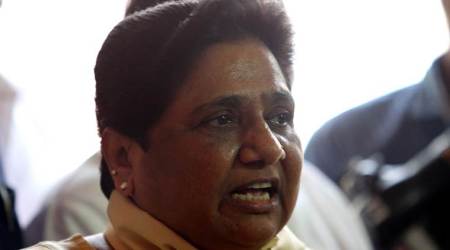 The counsellors admit not to have held a single counselling session. (Representational)
The counsellors admit not to have held a single counselling session. (Representational)
IT SEEMS that the plight of a 10-year-old rape victim who is 33-week pregnant has not been able to jolt the UT Administration out of its slumber. Go to any government school, and you will find not enough is being done to sensitise children. Take counselling, for example. UT has 87 counsellors working in 115 government schools. They do everything except counselling; they teach any subject they are asked to, they substitute for regular teachers but they don’t do the job they are recruited for. There are many reasons for that. One of them is: the education department hasn’t renewed their contracts which expired on March 31 this year. They have been working without salaries since then. Even before March 31, they never got their salaries on time.
The counsellors admit not to have held a single counselling session. “I was deputed as a counsellor but I am teaching Class X,” said a counsellor. “Neither the education department nor other officials ever thought that if we do this job, how would students get to know about the issues we are appointed for?”
Said another counsellor, “I have been appointed as a counsellor, but I have never held a single session of individual counselling. Hardly four times in four years I have taken counselling classes. Moreover, how can you expect a counsellor to work without salary? Our contract expired on March 31 and we have been working without salary.”
This year, the education department put out an advertisement to hire 54 new counsellors but no one came forward. “The fear of child abuse is every parent’s nightmare. Children can be made aware by counsellors specially trained for discussing these sensitive topics. Even the CBSE has issued a circular to spread awareness about sexual abuse in all schools, but the Director School Education office has not taken any steps. The department officials are insensitive, though their own kids are also studying in city schools,” said Chandigarh Parents Association president Nitin Goyal.
CCPCR member Pramod Sharma claims the counsellors working at UT schools are not trained. “We have held many meetings with the education department to hire trained counsellors, because those who are currently working in schools are not trained for the purpose,” Sharma said.
However, the nodal officer of POCSO cell of CCPCR, Niti Mohan, feels that regular teachers too can sensitise the students. “Although the presence of the counsellor is certainly important to address the issues and queries raised by the children, I think schools should ensure that their teachers have a comfortable relationship with students so that they can share their problems,” Mohan said.
The education department has not been paying heed even to CBSE’s directions on sensitisation among students. In 2015, the Central Broad of Secondary Education (CBSE) had directed the schools to screen a short animated film, Komal, which had won the national film award in the category of “best educational film” to create awareness among schoolchildren about good and bad touch. But the UT education department failed to screen the movie in any of the government schools.
The board directed that schools should make both students and their patents aware of POCSO E-Box, which has been developed by NCPCR. The E-Box facilitates easy and direct reporting of sexual offences against children and by children themselves so that action can be taken against the offenders. It was said the information on E-Box should be placed on noticeboards and walls of the school and published in school magazines. But nothing was done.
Also, the schools failed to form child-friendly committees, as recommended by the Chandigarh Commission for Protection of Child Rights (CCPCR), so that the children can be made aware of sexual abuse.
CCPCR chairperson Harjinder Kaur said, “Commission is trying its best to make both parents and students aware of good and bad touch. Few days ago, I asked the Director School Education to explain why no schools have formed any committees until now.”
The commission feels that other than sensitising the students, making parents aware is also the need of the hour. “Parents, especially those living in colonies, should be sensitised so that unfortunate incidents like that of a 10-year-old rape victim could be averted,” said Professor Nishtha Jaiswal.
The commission has proposed that city cinema halls should also play awareness slides to reach out to everybody. The commission has been organising workshop “Shout & Stop” in collaboration with State Legal Services Authority (SLSA), District Child Protection Unit (DCPU), Women and Child Helpline (181) and police personnel. The aim of the workshop is to inform children about the POCSO Act .
Taking a cue from two private schools which have included POCSO in their curriculum, now the UT Administration too plans to introduce these books in government schools.
UT Education Secretary B L Sharma said, “As far as I know, this teaching is absent in government schools. We will call for samples of these books first. Students tend to understand quickly when such information comes in an interactive story form,” he said. Nishu Singhal, director, Social Welfare Department, said, “I think the first lesson about good touch and bad touch starts at home. Teaching at schools and higher levels comes later; the need of the hour is to understand that it’s parents who should be sensitised about the issue,” she said.







